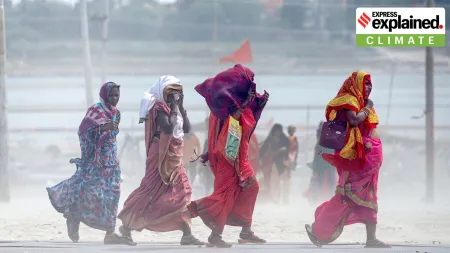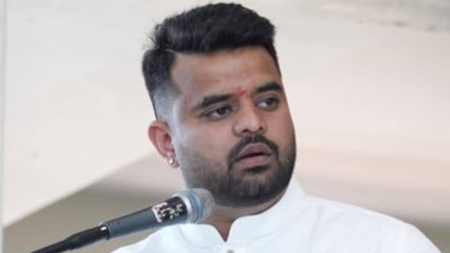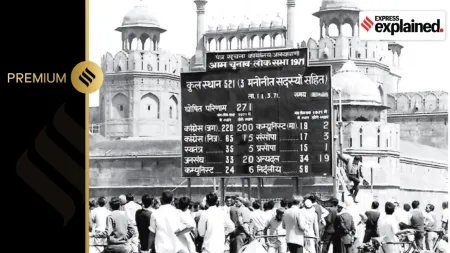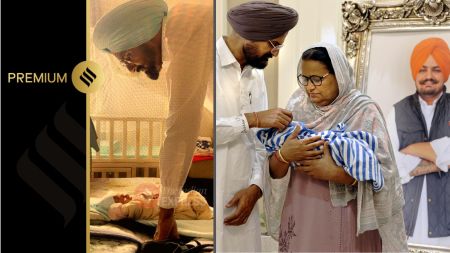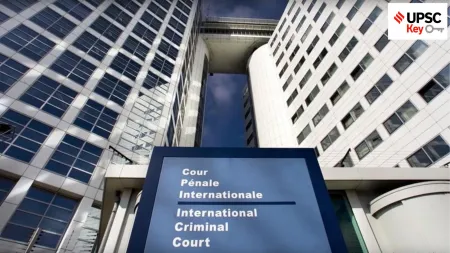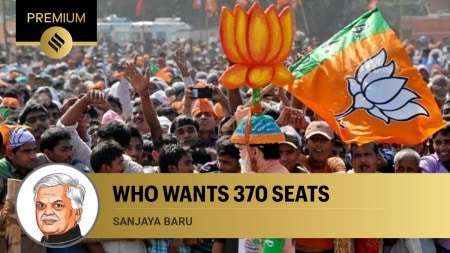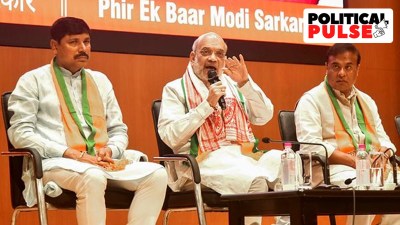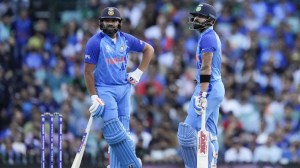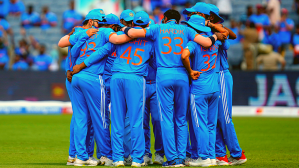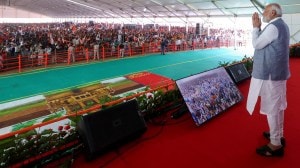- India
- International
The Gaza evasion
India’s government is cowering behind the BRICS position on the conflict
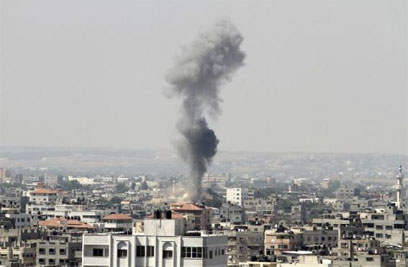 Hamas has no army, navy or air force. Its port has been blockaded, its solitary airport dismantled. (Source: Reuters)
Hamas has no army, navy or air force. Its port has been blockaded, its solitary airport dismantled. (Source: Reuters)
Next only to South Asia, West Asia matters most to us in foreign policy. It is where nearly eight lakh expatriate workers are making their living. It is from their remittances, constituting more than half of our total foreign exchange earnings, that we get the wherewithal to buy arms from Israel. Their safety is crucially dependent on the Arab goodwill that we have patiently built with Arab and Iranian regimes, monarchist or republican, revolutionary or Islamist. The region is the second or third most important destination for our exports. And it is from there that we source 70 per cent of our oil imports.
The issue that most unites the otherwise fractious nations of West Asia and Iran is Israel. It is in this respect that, owing to the immense foresight and sheer goodness of Jawaharlal Nehru, we made what till recently was an indelible mark on the West Asian and Iranian consciousness. Gandhiji set the tone with his celebrated remark in 1938, “Palestine belongs to the Palestinians as England belongs to the English and France to the French”.
In keeping with that, but recognising that Palestine was also home to a large and growing number of Jews, Nehru invited both Palestinian and Zionist representatives to the Asian Relations Conference in March 1947.
Inevitably, the two clashed, and it was left to Nehru to bring them together. The audience burst into thunderous applause when the heads of the two delegations shook hands.
In keeping with that spirit, India played a leading role in the two committees set up by the UN to consider the future of Palestine at the termination of the British mandate. While the West and the Soviet Union were united in their demand that Palestine be partitioned to create a sovereign homeland for the Jews, India, itself under the shadow of a looming, blood-soaked Partition, took the lead in arguing for a single federal state in which there would be two autonomous Jewish and Arab regions, but with a common central government democratically elected by all the citizens of a common state. To begin with, it looked as if the Indian formula would work as a compromise between the two diametrically opposed positions taken by the Arab states and the Zionists, but slowly, as pressure on the smaller states mounted from the major powers, they moved to the other side and Palestine was ultimately partitioned. The consequences have been more far-reaching and far more prolonged than was the case with the partitioning of India. But every dire prophecy of the Indian delegation has been more than tragically fulfilled, with terrible human consequences over the last 67 years.
The alternative two-state solution has been proposed but is far from being realised. Israel, with all the cards in its hands, has encroached so far into Palestinian territory as to have reversed the shares originally intended, from 95 per cent for the Arabs and 5 per cent for the Jews to 95 per cent for Israel and 5 per cent for Palestine, that too a Palestine split into a series of Bantustans and divided by Israeli territory between the West Bank and the Gaza strip, besides being peppered with illegal Israeli settlements. For a moment in 1992, the Palestinians (but not the brilliant chief negotiator, Hanan Ashrawi) were befooled into believing that the Oslo process had handed them the state of Palestine on a platter. When I then argued that it was not a state but merely panchayati raj in Gaza, I was accused of trying to be more Arab than the Arabs. But ultimately the truth dawned, and the Palestinians realised they had been tricked into returning from Tunisia to Gaza, where they were locked up and effectively isolated from the world.
Not wishing to be more Arab than the Arabs, P.V. Narasimha Rao decided the moment had come to upgrade relations with Israel to full diplomatic level. Since then, and particularly after Israel supplied the shells we needed to fire our Bofors guns in the Kargil war, relations with Israel have boomed while those with the Arab world have slid to now hit rock bottom.
How rock bottom was revealed in Narendra Modi’s performance at Fortaleza. His intervention on the merciless aerial bombing and ground assault by the Israelis on Gaza was limited to three sentences. First, he said, he was “concerned” at the ongoing “conflict”. Concerned, not outraged? Earlier, his foreign office spokesman had equated Israel with Hamas, overlooking the hundreds of Palestinian innocents, now nearing 600, that were and are being killed, whereas the retaliatory Hamas rocket attacks have killed much fewer Israelis. Moreover, Hamas has no army, navy or air force. Its port has been blockaded, its solitary airport dismantled. The only way out is underground tunnels; so the Israelis slaughter those who live above the tunnels. How can Hamas’s military capabilities be compared to those of Israel? Yet, from Modi, no condemnation, no harsh words, just mere “concern” over the one-sided ongoing massacre.

His second sentence is brief to the point of abruptness, “We support a negotiated solution”. But who broke off negotiations last year just when they were coming to fruition? Israel. And why? Because Hamas and Fatah had buried their differences and come together. In a classic divide and rule manoeuvre, Israel walked out of the peace talks and refuses to come back so long as Hamas sits at the table. Surely, therefore, the line on “negotiated solutions” should be addressed to Israel first. And for negotiations to commence, surely aggression and the killing of the lambs has to stop. Who is presiding over this slaughterhouse? Israel, of course. And therefore, whose responsibility is it that the butchery be ended? Israel’s, of course. But Modi has nothing to say about a ceasefire as the necessary precondition for negotiations to be resumed.
Third, Modi said a negotiated solution would “inspire hope and confidence” the world over. That’s all very well, but surely the cat to be belled is Israel. Let them cease fire on the condition that talks are resumed — and the talks will be resumed. But a ceasefire without talks is the road to nowhere. And although Israel claims to be prepared to cease fire, it is not ready to negotiate unless Fatah dissolves its newfound ties with Hamas.
Finally, what of the BRICS? Paragraph 38 of the Fortaleza Declaration blabbers on and on about Palestine, but it neither condemns Israel nor calls for a ceasefire. Modi and External Affairs Minister Sushma Swaraj take convenient cover behind that. In doing so, they forget Nehru who, referring to the problems we had had in the Palestine committees, said in the Constituent Assembly on December 4, 1947: “Inevitably that means we have to plough a lonely furrow”. But he added, “Nonetheless, that is the only honourable and right position by which we shall ultimately gain national and international prestige”. Modi and Swaraj cowering behind the BRICS position is not an edifying sight. The BJP has betrayed its own clarion call in its manifesto of giving us an independent voice in international fora.
The writer is a Rajya Sabha MP from the Congress
express@expressindia.com
EXPRESS OPINION
More Explained
May 01: Latest News
- 01
- 02
- 03
- 04
- 05


